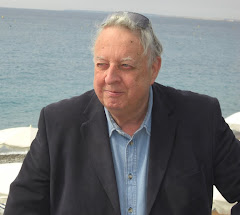Alerted by the forthcoming auction of the “ex-Seidel” Stradivarius violin, I dug out some of my recordings of Toscha Seidel (1899-1962). A pupil of Leopold Auer in St Petersburg, and twinned early on with Jascha Heifetz, Seidel had a less than stellar career, and no international career that I know of, apart from a brief recital tour in Scandinavia as a teenager with Auer and Heifetz. Emigrating to America, and after New York, to Hollywood, Seidel's musical career became bogged down in the Hollywood morass of fame, money, and popular shows. Much like Erich Korngold (1897-1957), with whom Seidel recorded Korngold's Much Ado About Nothing suite in 1941. Hollywood was a death knell for serious classical musicians (though Heifetz managed to survive most of the tinsel). Possibly both Korngold and Seidel died early of broken hearts and thwarted ambitions, with a sense of immense gifts unfulfilled. As the French say: une vie ratée. Few recordings of Seidel's playing remain, and most of them from the period 1926-45, and most of them of short vignette pieces (in which, like Mischa Elman, he excelled). Mischa Elman, Jascha Heifetz, Toscha Seidel, Fritz Kreisler: they were violinists like no others, and they do not make violinists like them any more. More is the pity.
Put on a piece played by Seidel, and you are greeted with soaring lyricism, passionate involvement in the music, and sensuous string playing. The sound is enough to make you rush out and put in a bid for the forthcoming auction of the ex-Seidel Strad. The best of Seidel? He recorded few long works, and no concertos that I know of. Be that as it may: one listens to Seidel for the violin playing, not for musical perspicacity. Probably no one regrets that Seidel did not record the Mozart or Beethoven violin concertos. But the Wagner Albumblatt, and Provost's Intermezzo with the violin's soaring lyricism. Or Brahms Hungarian Dance No.1. Or Korngold's Much Ado suite (with Korngold at the piano). Or Chausson's Poème in 1945 with Leopold Stokowski. I know of no Seidel recordings after 1945, which is a big black mark for the American recording industry, and a big source of regret for lovers of wonderful violin playing. It is said that his favourite work in his repertoire was the Brahms violin concerto but, alas any recordings of his playing the concerto have long been erased by the American commercial radio companies for whom he performed for, probably, substantial fees.
I treasure my small collection of 5-6 CD transfers of Toscha Seidel's meagre recorded legacy. I listen to the pieces when I wish to be reminded of just what a violin can do. And just how a great violinist can bring music to life, even short pieces of music. As I said: they don't make them like that any more.
